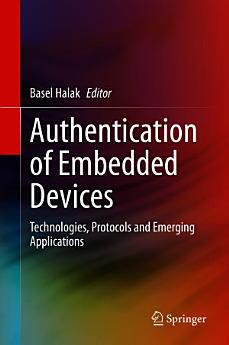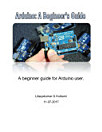Authentication of Embedded Devices: Technologies, Protocols and Emerging Applications
À propos de cet e-book
This book provides comprehensive coverage of state-of-the-art integrated circuit authentication techniques, including technologies, protocols and emerging applications.
The authors first discuss emerging solutions for embedding unforgeable identifies into electronics devices, using techniques such as IC fingerprinting, physically unclonable functions and voltage-over-scaling. Coverage then turns to authentications protocols, with a special focus on resource-constrained devices, first giving an overview of the limitation of existing solutions and then presenting a number of new protocols, which provide better physical security and lower energy dissipation. The third part of the book focuses on emerging security applications for authentication schemes, including securing hardware supply chains, hardware-based device attestation and GPS spoofing attack detection and survival.
- Provides deep insight into the security threats undermining existing integrated circuit authentication techniques;
- Includes an in-depth discussion of the emerging technologies used to embed unforgeable identifies into electronics systems;
- Offers a comprehensive summary of existing authentication protocols and their limitations;
- Describes state-of-the-art authentication protocols that provide better physical security and more efficient energy consumption;
- Includes detailed case studies on the emerging applications of IC authentication schemes.
À propos de l'auteur
Dr Basel Halak is the director of the embedded systems and IoT program at the University of Southampton, a visiting professor at the Technical University of Kaiserslautern,a visiting professor at the Kazakh-British Technical University, a fellow of the royal academy of engineering and a senior fellow of the higher education academy. He has written over 70-refereed conference and journal papers, and authored two books, including the first textbook on Physically Unclonable Functions. His research expertise include evaluation of security of hardware devices, development of appropriate countermeasures, the development of mathematical formalisms of reliability issues in CMOS circuits (e.g. crosstalk, radiation, ageing), and the use of fault tolerance techniques to improve the robustness of electronics systems against such issues.. Dr Halak lectures on digital design, Secure Hardware and Cryptography, supervises a number of MSc and PhD students, and is the ECS Exchange Coordinators. He is also leading European Masters in Embedded Computing Systems (EMECS) , a two year course run in collaboration with Kaiserslautern University in Germany and the Norwegian University of Science and Technology in Trondheim (electronics and communication). Dr Halak serves on several technical program committees such as HOST, IEEE DATE, IVSW, ICCCA, ICCCS, MTV and EWME. He is an associate editor of IEEE access and an editor of the IET circuit devices and system journal. He is also a member of the hardware security-working group of the World Wide Web Consortium (W3C).





